
“You are better than you think. A-one, a-two, a-three.”
—Kurt Vonnegut
Remember that old chestnut of writing advice that gets lobbed at all of us—particularly young writers, particularly new writers—write what you know? I ran across it first in my teens. Rather a dispiriting command for those of us whose real lives, the lives we knew, consisted of going to boring school every day in our boring town, and maybe, if we were lucky, going to the mall. My own trips to the mall invariably ended at the bookstore, where I sought escape in reading about other lives, other worlds that were nothing like the world I knew.
Not necessarily better worlds. I favored dystopias and disasters, perilous quests and amorphous monsters, the merest glimpse of which could blast your sanity and leave you a gibbering mindless hulk, not unlike how I felt at the end of double biology class.
My heart is in Middle Earth
My heart is not here
My heart is in Middle Earth
Trembling with fear …
I wrote in first-period algebra, when I compared Frodo’s quest to destroy the One Ring to the search for the square root of a quadratic equation, and the search for the equation didn’t come off too well. (Nor did my math grades, but that’s another story.)
I read, and re-read, Tolkien and Lovecraft and Poe and Stephen King. My high school library had volumes of the best science fiction, fantasy, and horror stories, going back to at least 1970. I studied them like scripture. But my own attempts to write in those genres always felt like flat imitation. At the same time, I obsessively chronicled the ordinary details of my own life in notebooks: who wore the yellow dress that made her look like “a squeezed-out lemon,” who wrote “I LOVE KENNY” on the desk I shared in third period English, prompting me to question: “Does he love you?”; which teacher made the whole class stay after school because a few kids were acting up, spurring me to add a new dictionary definition under the word “shit.” Impromptu songs and poems and comics, but I didn’t consider any of it “real” writing, just throwaway stuff.
Only I didn’t throw it away. A quiet voice inside told me not to. I would learn to listen to that voice.
What I remember from my first “real” writing workshop were the yellow sheets the instructor gave us with comments on our stories, comments so detailed it felt as if each story had already been published and was worthy of critical attention. I only remember one piece of general writing advice, but it stuck in my mind as a corollary to write what you know: “You know more than you think you know.”
I can’t explain the sense of freedom and relief that advice gave me. How many times I’d discarded story ideas, telling myself I couldn’t write about X because I’d never been to Y and didn’t know enough about Z.
If a story idea feels right, if it feels emotionally true, then write it. Researching the details can come later. In that workshop I wrote a first draft of my story “The Night Copernicus Died,” about a nuclear scientist haunted by regret. I am not now, nor have I ever been, a nuclear physicist. My only “research” for the story was a book I’d once read about the making of the atomic bomb and a manga written by a survivor of Hiroshima.
But I’d been born into a world shadowed by the threat of nuclear annihilation. I’d never known a time when that shadow didn’t haunt my dreams. As a teen and young adult, I’d wake in the middle of the night with my heart pounding, sure the world was going to end that night. I’d lie awake, making lists of all the things that made the world worth saving, fireflies and forsythia and golden retriever puppies, even though the people in it were so stupid.
Years later, I met someone who’d been in the army during the Reagan years. “You don’t know how close we got, a couple of times,” he told me. But on some level I did know. And that feeling—that inner knowledge—was what drove the story.
It was published in a science fiction magazine. I worried that, because its readers probably included a higher-than-average proportion of MIT grads, someone would question the science.
No one said a word about the science. But I was forwarded a letter by one reader who wanted me to know that, while I had described the 1950s as a time when “gas was five cents a gallon,” it was, in fact, closer to 25 cents per gallon for much of that decade.
Duly noted.
In a more recent story, “Skater Girl at Rest,” I wrote in the voice of a former teen-movie star now sentenced to home confinement:
Anna had always imagined an ankle bracelet would look like an actual bracelet, like the cylindrical copper coil she’d bought one year at Burning Man.
But it didn’t. It was bulky and oddly medical, with a thick black attachment that reminded Anna of a garage door opener or an old-school drug dealer beeper. It chafed her ankle and banged against her other leg when she slept and made wardrobe choices so much harder than they had to be.
That voice just came to me, like taking dictation from a friendly ghost, yet having written it I started to worry that I’d got ankle bracelets all wrong; maybe they were discreet and delicate little bands, and what did I know about ankle bracelets anyway?
I consulted the Google (The Google is your friend! Just not in the first draft) and found that they were, in fact pretty much exactly as I’d described them.
You know more than you think you know.
But what could I know about being dead? I would never claim that I know what it’s like to be dead, unless I happened to be singing a song written by John Lennon, but a while ago I became possessed by the need to write a story from the point of view of a dead person. Not a ghost, or an angel, or a spirit trapped in some interdimensional bardo. Just a regular dead person, who was dead but in some way still there, still a part of the physical world.
I had been doing some strange reading, as I’m apt to do, about body farms and unusual disposition of human remains, and some of it was fascinating and some of it was horrifying, and the question I kept asking myself was why? Why would someone choose to have their body thrown down an elevator shaft, strapped into a crashing car, torn to pieces by animals, or left to rot in an open field?
The voice of my narrator, a calm and reasonable voice, started speaking to me. She started telling me her story. And so I had to listen.
They say we’ll get our bodies back whole after the rapture, but I’m pretty much done with mine—like when you’ve got an old nightgown so worn and full of holes that you’re just as happy when it rips, so you can tear it up for rags.
The story, “A Key Into the Language of the Dead,” was published in Superstition Review‘s Issue 23. The characters and what they talk about and think about are made up. What happens to the bodies is real.
What happens to the pumpkin is also real. It grew in my front yard.
So yes, write what you know. That can be good advice, but don’t let it limit you to a narrow definition of what you think you know. You’ve seen things you didn’t realize you saw. You’ve heard things you don’t remember you heard. You know more than you think you know. Trust what you know. Tell the stories that beckon you, the ones that trouble you, even if they seem difficult or strange.
And always Google the gas prices.

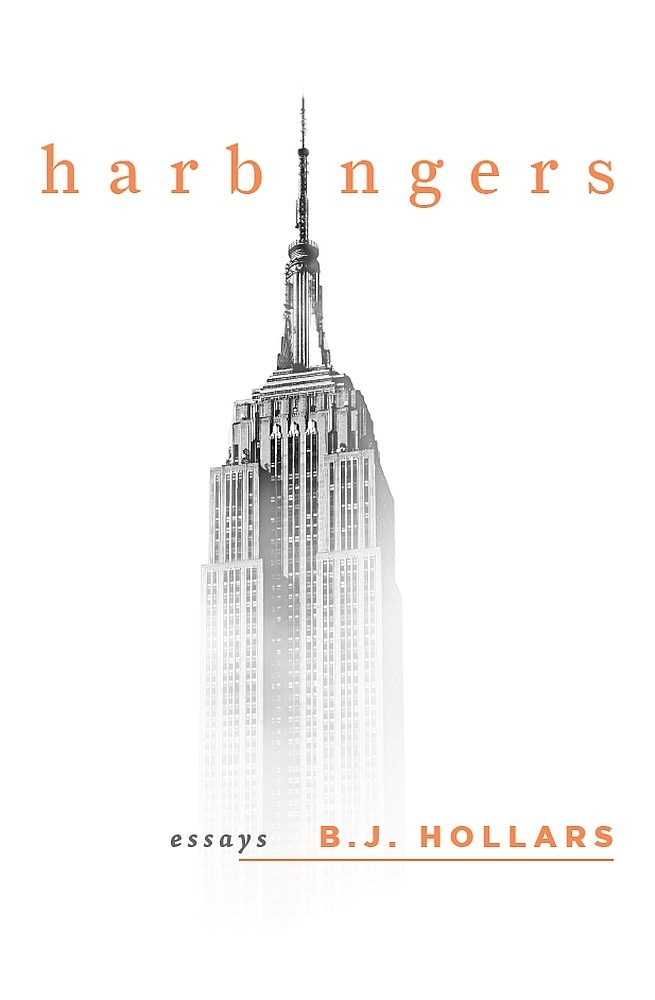
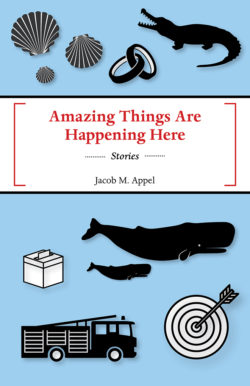



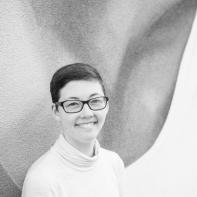
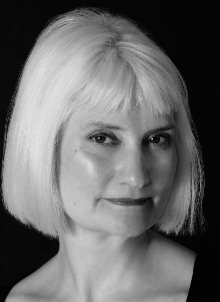 Today we are happy to share news about past contributor Terese Svoboda. Terese’s new short story collection Great American Desert is to be published by Mad Creek books. The collection has found its home in the new genre of ‘cli-fi’, or climate fiction, as it explores the relationship between man and earth from the past to distant future.
Today we are happy to share news about past contributor Terese Svoboda. Terese’s new short story collection Great American Desert is to be published by Mad Creek books. The collection has found its home in the new genre of ‘cli-fi’, or climate fiction, as it explores the relationship between man and earth from the past to distant future.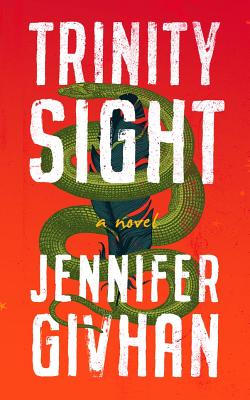 Today we are thrilled to share news of past contributor Jenn Givhan. Jenn’s debut novel, Trinity Sight, is available for preorder from Blackstone Publishing, and will be published October 1, 2019. The novel, inspired by indigenous oral-history traditions, takes a new spin on dystopian fiction. Jenn’s characters are confronted with dueling concepts of science, faith, modern identity and ancestral tradition as they attempt to understand how the world fell apart.
Today we are thrilled to share news of past contributor Jenn Givhan. Jenn’s debut novel, Trinity Sight, is available for preorder from Blackstone Publishing, and will be published October 1, 2019. The novel, inspired by indigenous oral-history traditions, takes a new spin on dystopian fiction. Jenn’s characters are confronted with dueling concepts of science, faith, modern identity and ancestral tradition as they attempt to understand how the world fell apart.